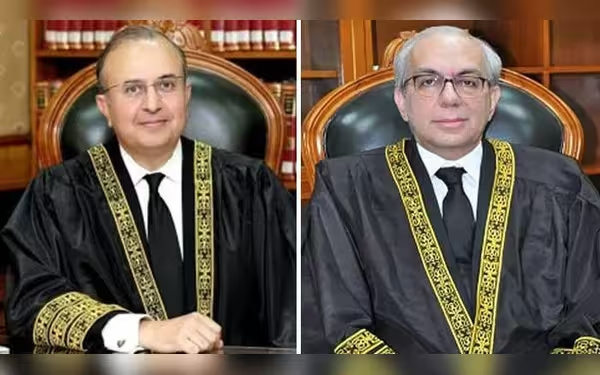Saturday, November 16, 2024 09:31 PM
Justice Shah Rejects Judges Committee Meeting Post Ordinance
- Justice Shah declines judges committee meeting invitation.
- New ordinance raises concerns over judicial independence.
- Justice Munib Akhtar removed without clear explanation.
 Image Credits: thenews.com.pk
Image Credits: thenews.com.pkJustice Shah refuses to attend judges committee meeting after new ordinance raises concerns over judicial independence in Pakistan.
In a significant development within Pakistan's judicial system, Justice Shah has publicly declined to attend a judges committee meeting following the recent promulgation of a new ordinance. This ordinance has stirred controversy, particularly due to its implications for the composition and functioning of the judges committee.
According to a letter addressed to the secretary of the Supreme Court, Justice Shah expressed his concerns regarding the swift reconstitution of the judges committee. He pointed out that this restructuring occurred just hours after the ordinance was enacted. Notably, Justice Munib Akhtar was removed from the committee without any clear explanation, raising questions about the transparency and fairness of the process.
The newly amended law introduces additional powers for the chief justice, allowing him to nominate a judge as a member of the committee in the event of another member's absence. This change has sparked debate among legal experts and the public alike, as it could potentially lead to an imbalance of power within the committee. Critics argue that such authority could be misused, undermining the independence of the judiciary.
Justice Shah's refusal to participate in the meeting highlights the growing concerns among judges regarding the recent changes to the judicial framework. His stance reflects a broader unease within the legal community about the implications of the ordinance on judicial independence and accountability.
As the situation unfolds, it is crucial for stakeholders in the legal system to engage in open dialogue about the future of judicial governance in Pakistan. The integrity of the judiciary is paramount for upholding the rule of law and ensuring justice for all citizens. Moving forward, it will be essential to monitor how these changes affect the functioning of the judiciary and the public's trust in its processes.













